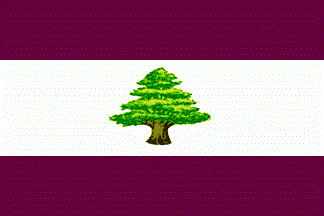Talk:Lebanon
On the wikipage for Judea, it says:
"When the Ottomans conquered the Middle East and much of the Balkans, the Fourth Commonwealth allied itself with the mostly Druze nation of Lebanon and successfully repelled the Turks from most of the Levant. This lasted until the mid-1800s, when the Ottoman Empire conquered Judea and Lebanon. Armed resistance was fierce, but neither nation resorted to protracted guerrilla warfare when in the years after the conquest they saw that the Ottoman Turks weren't interested in religious persecution or ethnic assimilation, just empire-building. This lasted until a few years after the First Great War, around 1922, as the separatist movements in the Ottoman Empire spread southeastwards from the Balkans into the Mideast."
I'm most interested in the Ottoman Empire conquering Lebanon in the mid-1800's. *Here* there was a series of rather bloody conflicts between the Maronites and the Druze during that time (see [1] for a quick overview), with the strife coming to a head in 1860. This conflict was echoed over 100 years later by the Lebanese Civil War in the mid-70's (though this latter war was very complicated). If IB Lebanon is supposed to have been under Druze rule from the 1500's to the mid-1800's, when the Ottomans took over, what happens to the Maronite community at that time?
A broader question is, what position do the Maronites have at all? *Here* the indigenous Maronite Christians of Lebanon supported the Crusaders. *There*, however, the Crusades were much longer, with European Christians in control of the Levant until the 1500's. Did the Maronites *there* continue supporting the Crusaders throughout this time? Did they get fed up with the Crusader presence and help kick them out? I'm guessing that if they did, they would have a say in the running of independent Lebanon. If not, they might be kicked out or just heavily oppressed.
Basically, I'd like to raise the question of the Maronites and other non-Druze minorities in IB Lebanon: to what extent they are represented in government, what role they play in society, where their enclaves may be, etc.
- Hello! I would think it would be very IB for unique religious minorities to play an even stronger role than *here*. Just my 2 dinar, though; I don't know much about the Maronites and Druze in particular. Benkarnell 14:46, 10 January 2008 (PST)
- Hmm. I've been wondering this as well. The main causes of the Lebanese Civil War *here*, IIRC, were the aforementioned Maronite-Druze conflicts, French colonial mismanagement and favourisation of the Maronites, and the presence of Palestinian liberation groups in Lebanon. Obviously the latter too don't exist--but what about the former? They were almost certainly allies before the Ottomans took over, but what about after? When did the Ottomans take over? And what were their ethnic policies? Juan Martin Velez Linares 12:43, 19/2/2016 (CST)
- Lebanon, so as the other levantine countries predecessor to present Judea and Syria, became independent after the Crusader Kingdoms ended (during early 1500's). I'm sure these countries were allies since then against a common enemy (that means the Ottomans) until they were finally defeated during the 1840's. I wrote about it some time ago when I wrote Syria article. As far someone already wrote (I think was Steg Belsky, the caretaker of the Middle East) the Ottomans were more interested in empire building than in turkify the conquered peoples. Lebanon after independence (1920 or so) became a successful country, where different ethnicities and religions co-exist in peace, unlike *here*. Steg wrote on July 2010, on Conculture:
"The way i've always imagined and presented it, Lebanon is a unitary, non-monarchic state. The Lebanese have succeeded in creating an integrated, multicultural, multireligious nation with a unified 'Lebanese' identity. It may very well be that in the early days of the modern Lebanese Union which formed in the breakup of the Ottoman Empire, there were explicit power-sharing agreements like *here* in which particular sectors of the population owned or traded positions; however, over the course of the 20th century, those power-sharing agreements were peeled back as the political and social culture of Lebanon became more "colorblind" (for lack of a better term) and they were no longer necessary. Today in Lebanon *there* the political parties are not affiliated with particular religions, and candidates for office aren't seen as "the Shiite candidate" or "the Druze candidate" or "the Maronite candidate" etc. In the previous period of Lebanese independence, during the era of the Lebanese-Judean anti-Ottoman "Levantine Alliance", the Druze ruled the country and everyone else were merely the recipients of tolerance and religious freedom. But today Lebanon is a very free country."
--Pedromoderno 19:26, 19 February 2016 (PST)
Any chance of Byzantium having a more aggressive stance in the Crusades? Minus the 4th of course. Misterxeight 19:06, 15 February 2009 (UTC)
Lebanese flag
- There's* Lebanese flag always seemed to me too close to *here's* one. Just one suggestion, replacing red stripes by tyrean purple ones, as this colour can also have historical meaning for Lebanon. What do you think?
It would look something like this:
 --Pedromoderno 17:35, 5 November 2020 (PST)
--Pedromoderno 17:35, 5 November 2020 (PST)
- Instead the spanish fess guess we have the lebanese fess.--Pedromoderno 17:40, 6 November 2020 (PST)